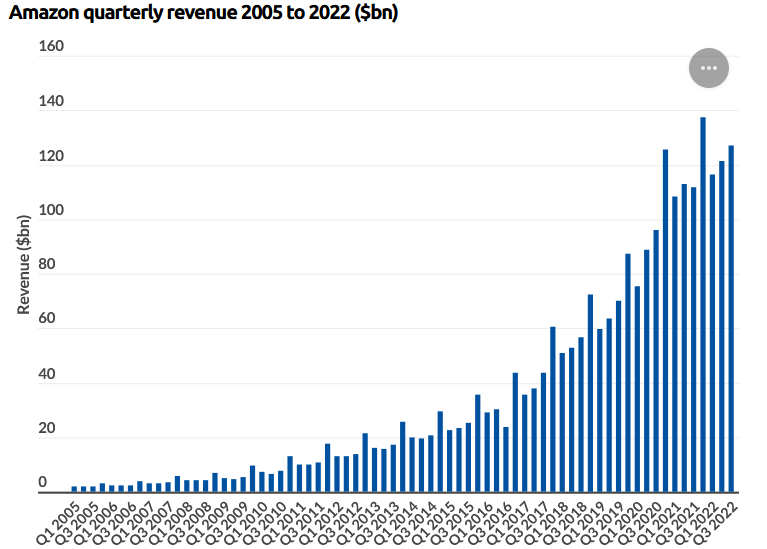1781
A Detailed Guide On Magento 2 Amazon Integration
5 min read
Table of Content

As of October 2022, Magento stores account for approximately 0.9% of all eCommerce stores present on the web. With over 167,000 Magento 1 active stores and 100,000 Magento 2 active stores, Magento provides you with complete customization capabilities for your store.
While Magento alone can help you build interactive, feature-rich, and sustainable online stores, increasing your sales becomes a bigger challenge. Besides developing a robust and secure site, you will have to take care of its user experience. Market it properly and so on.
That’s where Magento 2 Amazon integration comes into the picture! Yes, it is possible to integrate your Magento 2 store with marketplaces like Amazon, eBay, and more.
Now that you know, you might wonder if Magento Amazon integration will actually be fruitful with respect to successful eCommerce store development. Well, it has the potential to upsurge your sales in leaps and bounds, if not more.
In this blog, you’ll see more about the whys and hows of Magento 2 Amazon integration. Let’s dive right into it!
It is possible to call Magento web APIs with the help of integration. You can integrate any third-party apps and plugins to improve the performance and functionality of your Magento store.
At present, Magento API supports ERP, CRM, Accounting, Product information management, marketing automation, etc. You can integrate your Magento store with marketplaces like Amazon and eBay and start selling on multiple platforms.
If you are wondering what makes Amazon the perfect marketplace for your Magento integration, here are some statistics to note!

| Year | Online Stores (In $bn) |
Physical Stores (In $bn) |
Third-party Retail (In $bn) |
AWS (In $bn) |
Others (In $bn) |
|---|---|---|---|---|---|
| 2019 | 141.2 | 17.1 | 53.7 | 35 | 33.2 |
| 2020 | 197.2 | 16.2 | 80.4 | 45.3 | 46.6 |
| 2021 | 222 | 17 | 103.3 | 62.2 | 66.2 |
All of these statistics suggest Amazon is indispensable as an eCommerce marketplace. Let’s check these Magento 2 Amazon integration key benefits.
Read Also: How to Optimize Magento Store’s Performance with Hyva Theme Development
With so many benefits of integrating the Magento 2 store with Amazon, it is clear that you can sell your products more aggressively. However, executing it can be a bigger challenge, especially if you lack the technical expertise.
To integrate Magento with Amazon, you will need extensions! You can either use the readymade extensions or custom-create one. Next, follow the steps mentioned below.
After this, you need to configure Magento with Amazon so you can start using the Amazon features on your Magento store. However, the steps are complicated and it is preferable to connect with a Magento development agency for smooth execution.
With this extension, Magento eBay and Amazon integration are possible. Not just that, it also helps businesses sell on Google, Walmart, and more. The plan starts from free for up to 50 orders per month and can range up to $199/month for about 2,500 orders per month.
Features:
The native Magento extension is great for Magento Amazon eBay integration. It allows full customization and complete automation alongside giving a 30-day free trial option to its users.
Features:
Features:
Features:
Available in Open Source (CE), Commerce on Premium Enterprise (EE), and Commerce on Cloud (ECE) editions.
Features:
Features:
These are some of the best extensions along with their Magento 2 Amazon integration features. You can choose to integrate any of these or custom-create one with help from Magento 2 development company.
If you are looking for a company that can help with Magento-Amazon Integration Solutions, look no further than BiztechCS. We are a Magento Bronze partner and have the expertise to integrate marketplaces like Amazon with your Magento store.
Connect with our team to get more insights about it!
Integrating your Magento store with the Amazon marketplace not only requires technical expertise but also a strong knowledge of eCommerce. You have to be aware of eCommerce trends, changing customer preferences, and market demand to upsurge your sales.
This blog should help you understand why businesses like yours prefer Amazon Magento integration. You will also be able to know ways to do it. However, the steps can be too technical and complicated. It would be beneficial for you to opt for professional eCommerce store development services.